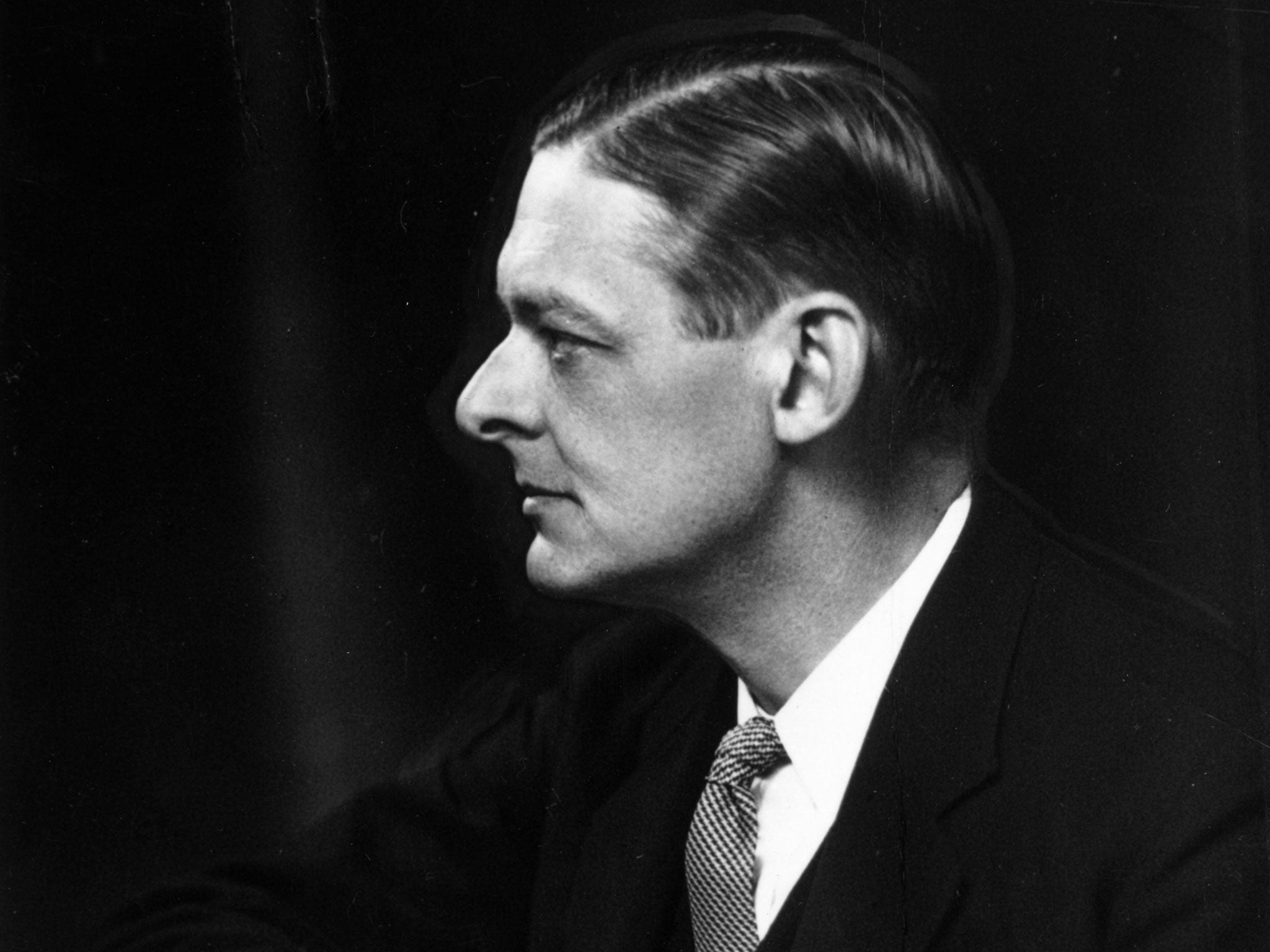IoS book review: The Letters of TS Eliot Volume 4: 1928-1929, ed Valeria Eliot and John Haffenden
The fourth volume of T S Eliot's correspondence reveals an influential and newly self-confident figure, with deepened religious conviction

The passage from private to public that dominated the third volume of T S Eliot's letters, covering the period from 1926 to 1927, seems almost complete in this subsequent collection, barely 12 months on. His employers, Faber and Gwyer, have taken on the financing of his magazine, The Criterion, to change it from a monthly to a quarterly; he has essays on Pound and Dryden to write; he is even more frequently in communication with the leading writers of the period, in his role as a literary editor. What there is far less of is concern about Vivienne, his troubled wife, and the fond, often illuminating correspondence with his mother, who dies at the end of the period covered by this volume.
It does all give the impression of a man more in control of his destiny. Previous volumes stressed his repeated illnesses, which were almost certainly exacerbated by the stress of having to cope with Vivienne, who suffered poor mental health and would contro-versially end her days in a sanatorium, where Eliot would never visit her. Family members would write about her difficult ways and friends would comment on the effect on "Poor Tom". In this fourth volume, although Vivienne is now at home after an extended stay in hospital in France, there is less public evidence of problems at home.
That doesn't mean that they didn't exist. In a letter to Lady Ottoline Morrell, Eliot says simply that "V. has come back with me. It may not be a bad thing", while in her diary seven years later, Vivienne writes of her coming home: "It was a very bad time & I felt terribly frightened at what I had done. So that I was out of my mind & so behaved badly to Tom & got very excited ...." It shows that Eliot has become more adept at dealing with their private affairs in public.
What is also clearer is Eliot's deepening religious convictions. (Much to Virginia Woolf's concern: "I have had a most shameful and distressing interview with poor dear Tom Eliot ... I mean, there's something obscene in a living person sitting by the fire and believing in God.") There is a shifting in Eliot's friendships: things have calmed down since his row with the poet Richard Aldington, for example, but his reliance on the essayist and literary editor John Middleton Murry as an ally in the situation with his wife, has eased, too. Personal insights tend to come from other correspondents – from Woolf passing on to her sister gossip from Morrell, and so on.
There are some spats over reviewing, and some heartfelt letters from writers looking for work. H E Bates offers a story to The Criterion, saying: "If only for financial considerations, do print it early if possible. My income from literature is that of a bad farm labourer." Meanwhile, Eliot responds generously to a rather negative portrayal of him by Vita Sackville-West, whose "influence", she says "has had many disastrous consequences", by responding that "the only thing that ever upsets me (and I think that is quite normal) is not being mentioned at all."
There is a sense that Eliot the public man is becoming the whole man, almost. Vivienne complains in a letter to their friend Mary Hutchinson: "Of course he is so reserved & peculiar that he never says anything about it, & one cannot get him to speak." Where he does speak out is in letters to newspapers and magazines. One lengthy letter to the Forum echoes his religious faith when he writes that in current literature he sees "evidence of a transition, a revolt against the paganism of progress of the 19th century, toward a rediscovery of orthodox Christianity". The author of Four Quartets is not far off.
We also see Eliot taking the role of a poet who could help further the careers of younger poets – although Auden's claim after his death that he taught them "it was unbecoming to behave or dress in public like the romantic conception of a poet", is somewhat contradicted by one of Eliot's protégés, the more flamboyant George Barker.
Eliot is only 41 in this volume, but already there is a sense of a man established, or certainly in the process of becoming so. This volume hints, too, less pleasantly, at Eliot's anti-Semitism, in the case of a young Jewish novelist, Edward Dahlberg. Dahlberg had been told by a founder of the Imagist movement, F S Flint, that Eliot "does not like Jews". Dahlberg, however, later wrote that he found Eliot "gracious and kind" and blamed him "for nothing but the books that he has written".
The editors John Haffenden and the late Valerie Eliot have committed themselves to laying bare as much of Eliot's correspondence as they can lay their hands on. While inevitably this means a certain amount of redundant or uninteresting material (his polite, formal letters of acceptance or rejection, for instance), this full disclosure of a writing life is quite invaluable.
Eliot died in 1965; there will be many more volumes to come.
Faber £40
Subscribe to Independent Premium to bookmark this article
Want to bookmark your favourite articles and stories to read or reference later? Start your Independent Premium subscription today.

Join our commenting forum
Join thought-provoking conversations, follow other Independent readers and see their replies